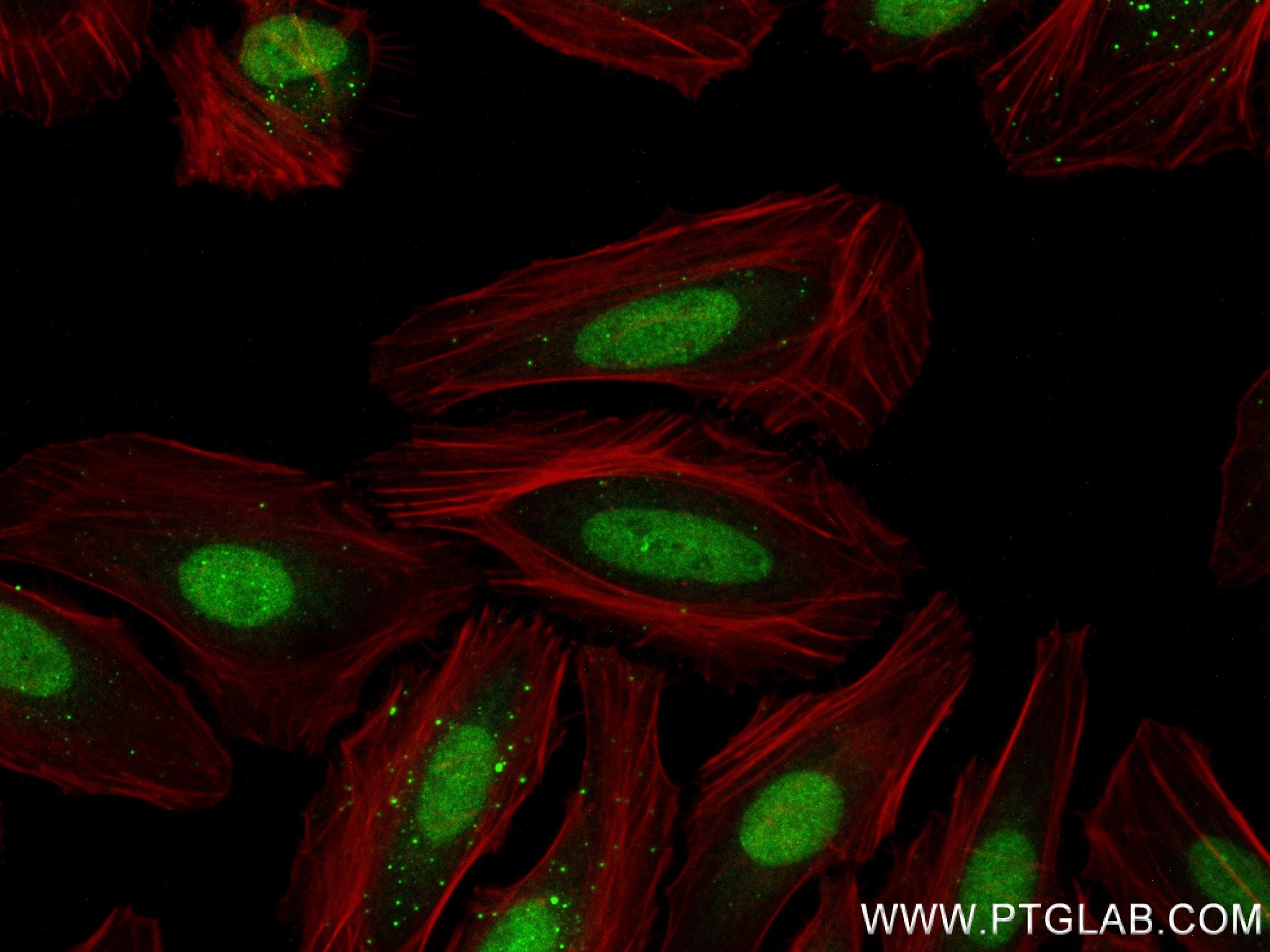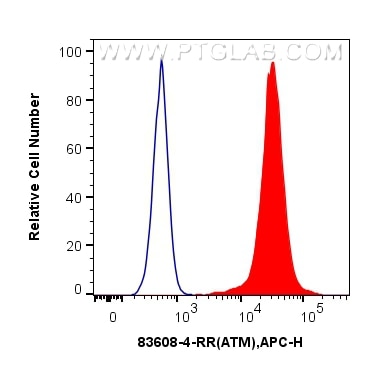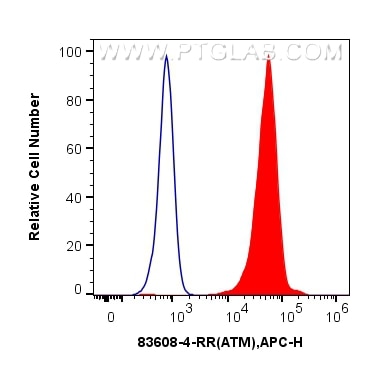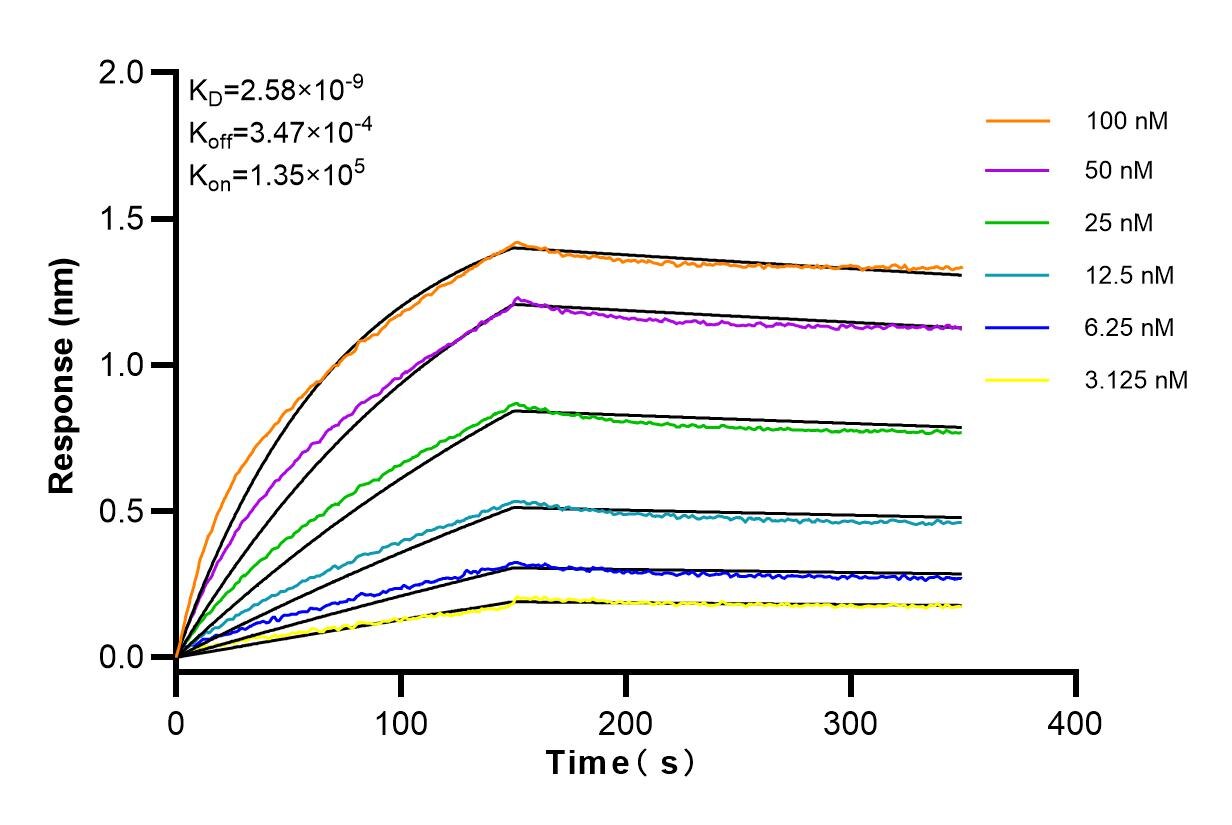Anticorps Recombinant de lapin anti-ATM
ATM Recombinant Antibody for IF/ICC, FC (Intra), ELISA
Hôte / Isotype
Lapin / IgG
Réactivité testée
Humain
Applications
IF/ICC, FC (Intra), ELISA
Conjugaison
Non conjugué
CloneNo.
240560H8
N° de cat : 83608-4-RR
Synonymes
Galerie de données de validation
Applications testées
| Résultats positifs en IF/ICC | cellules HeLa, |
| Résultats positifs en FC (Intra) | cellules HeLa, cellules MCF-7 |
Dilution recommandée
| Application | Dilution |
|---|---|
| Immunofluorescence (IF)/ICC | IF/ICC : 1:300-1:1200 |
| Flow Cytometry (FC) (INTRA) | FC (INTRA) : 0.25 ug per 10^6 cells in a 100 µl suspension |
| It is recommended that this reagent should be titrated in each testing system to obtain optimal results. | |
| Sample-dependent, check data in validation data gallery | |
Informations sur le produit
83608-4-RR cible ATM dans les applications de IF/ICC, FC (Intra), ELISA et montre une réactivité avec des échantillons Humain
| Réactivité | Humain |
| Hôte / Isotype | Lapin / IgG |
| Clonalité | Recombinant |
| Type | Anticorps |
| Immunogène | ATM Protéine recombinante Ag25920 |
| Nom complet | ataxia telangiectasia mutated |
| Numéro d’acquisition GenBank | BC137169 |
| Symbole du gène | ATM |
| Identification du gène (NCBI) | 472 |
| Conjugaison | Non conjugué |
| Forme | Liquide |
| Méthode de purification | Purification par protéine A |
| Tampon de stockage | PBS with 0.02% sodium azide and 50% glycerol |
| Conditions de stockage | Stocker à -20°C. Stable pendant un an après l'expédition. L'aliquotage n'est pas nécessaire pour le stockage à -20oC Les 20ul contiennent 0,1% de BSA. |
Informations générales
The ATM protein is a member of the phosphatidylinositol 3-kinase family of proteins that respond to DNA damage by phosphorylating key substrates involved in DNA repair and/or cell cycle control. It is involved in mitogenic signal transduction, meiotic recombination, detection of DNA damage, and cell cycle control.
Protocole
| Product Specific Protocols | |
|---|---|
| IF protocol for ATM antibody 83608-4-RR | Download protocol |
| FC protocol for ATM antibody 83608-4-RR | Download protocol |
| Standard Protocols | |
|---|---|
| Click here to view our Standard Protocols |






